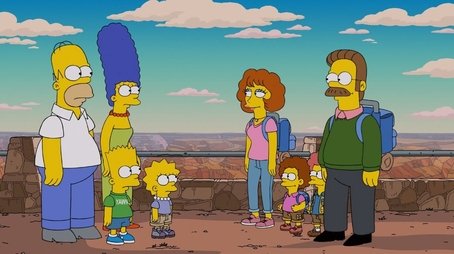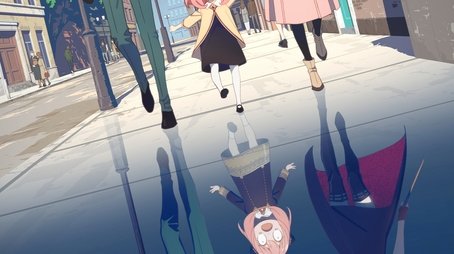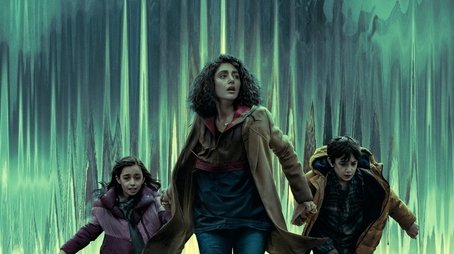
Ask Your Own Question
What is the plot?
The episode "Fland Canyon" begins with Homer and Marge Simpson planning a family trip to a national park. They are excited about spending quality time together, but the kids, Bart, Lisa, and Maggie, are less enthusiastic about the idea. Bart is particularly resistant, preferring to stay home and play video games. However, Marge insists that the trip will be a great bonding experience for the family.
As they arrive at the national park, the family is greeted by the beautiful scenery and the promise of adventure. Homer is eager to explore, but Marge is concerned about the kids' lack of enthusiasm. They set up camp, and Homer tries to engage the children in various outdoor activities, but they remain uninterested. Bart sneaks off to play video games in the woods, while Lisa finds solace in nature, observing the wildlife.
Meanwhile, Ned Flanders, the Simpsons' neighbor, is also at the park with his own family. He is excited to show off his outdoor skills and tries to bond with the Simpsons. However, Homer feels overshadowed by Ned's enthusiasm and expertise in camping. This leads to a rivalry between the two families, with Homer determined to prove that he can be just as good at camping as Ned.
As the episode progresses, Homer decides to take the family on a hike to a nearby canyon, which he believes will impress them. However, the hike takes a turn for the worse when they get lost. Tensions rise as the family argues about their situation, with Bart blaming Homer for the misadventure. Lisa tries to keep the peace, but the stress of being lost in the wilderness begins to take its toll on everyone.
In a moment of desperation, Homer attempts to lead the family back to safety, but they end up in a precarious situation at the edge of a cliff. The family is scared, and Homer realizes the gravity of their predicament. He tries to reassure them, but his own fear is palpable. Just as it seems they might fall, Ned Flanders appears, having followed them to ensure their safety.
Ned helps guide the Simpsons back to safety, showcasing his outdoor skills and knowledge. Homer feels a mix of gratitude and embarrassment, realizing that he needs to accept help from others. The family finally makes it back to their campsite, where they reflect on their adventure. Despite the challenges they faced, they find a sense of unity and appreciation for each other.
The episode concludes with the Simpsons sitting around the campfire, sharing stories and laughter. Homer acknowledges that the trip didn't go as planned, but it brought them closer together. The family enjoys their time in the park, and even Bart admits that he had fun, albeit begrudgingly. The episode ends on a positive note, highlighting the importance of family and the unexpected joys of adventure.
What is the ending?
In the ending of "Fland Canyon," Homer and Marge Simpson, along with Ned Flanders, find themselves in a precarious situation after a series of misadventures in the canyon. They manage to escape the dangers they face, and the episode concludes with a sense of camaraderie and understanding between the characters, particularly highlighting the bond between Homer and Ned.
As the episode unfolds towards its conclusion, we see Homer, Marge, and Ned Flanders navigating the treacherous terrain of Fland Canyon. The trio has been on a journey that tests their limits, both physically and emotionally. They face various challenges, including a near-fatal encounter with a cliff and the harsh realities of survival in the wilderness.
In a pivotal scene, Homer, who has been struggling with his own insecurities and feelings of inadequacy, steps up to protect Marge and Ned. This moment of bravery is a turning point for him, showcasing his growth as a character. He realizes that he must take responsibility not just for himself but for those he cares about.
Ned, who has often been portrayed as the overly optimistic and somewhat naive character, also experiences a moment of clarity. He learns to balance his faith and optimism with the harsh realities of their situation. His interactions with Homer reveal a deeper understanding of friendship and support, as he encourages Homer to embrace his strengths.
As they finally find a way out of the canyon, the emotional weight of their experiences brings them closer together. They emerge not just as survivors but as friends who have faced adversity together. The episode ends on a light-hearted note, with the trio sharing a laugh, reinforcing the theme of friendship and resilience in the face of challenges.
In summary, the fate of each main character is one of growth and strengthened relationships. Homer learns to embrace his role as a protector, Marge remains a steadfast support for Homer, and Ned finds a deeper connection with his friends, highlighting the importance of community and support in overcoming life's obstacles.
Is there a post-credit scene?
In the episode "Fland Canyon" from Season 27 of The Simpsons, there is indeed a post-credit scene. After the main story concludes, the scene features Ned Flanders and his sons, Rod and Todd, enjoying a peaceful moment together. They are seen sitting on a couch, watching television. The atmosphere is light-hearted, and the family is engaged in a wholesome activity, reflecting their close-knit bond. This scene serves to reinforce the themes of family and togetherness that are often present in the series, providing a warm and humorous conclusion to the episode.
How does Bart's behavior change throughout the episode?
In 'Fland Canyon', Bart initially exhibits his typical mischievous behavior, but as the episode progresses, he begins to reflect on the consequences of his actions, especially in relation to his father's conflict with Ned. This leads to moments of introspection where Bart considers the importance of friendship and loyalty.
What causes the rift between Ned Flanders and Homer Simpson in 'Fland Canyon'?
The rift between Ned Flanders and Homer Simpson is primarily caused by a misunderstanding and a series of unfortunate events that lead to Homer accidentally ruining Ned's prized possessions. This culminates in a significant emotional fallout, where both characters confront their feelings of betrayal and disappointment.
What role does the canyon play in the conflict between the characters?
The canyon serves as a physical representation of the emotional divide between Homer and Ned. It becomes a setting for pivotal moments in the episode, including a dramatic confrontation and eventual reconciliation, symbolizing the challenges they face in their friendship.
How does Ned Flanders react to the events that unfold in the episode?
Ned Flanders experiences a range of emotions throughout 'Fland Canyon', from anger and betrayal to sadness and ultimately forgiveness. His character grapples with the idea of maintaining his faith and kindness in the face of conflict, showcasing his internal struggle between hurt feelings and his desire to mend the friendship.
What specific actions do Homer and Ned take to resolve their conflict?
To resolve their conflict, Homer and Ned engage in a series of comedic yet heartfelt attempts to communicate and understand each other's perspectives. They embark on a journey that includes humorous mishaps and ultimately leads to a moment of clarity where they acknowledge their mistakes and reaffirm their friendship.
Is this family friendly?
In "Fland Canyon," there are a few elements that may be considered objectionable or upsetting for children or sensitive viewers:
-
Death and Grief: The episode deals with themes of loss and the emotional impact of death, which may be heavy for younger audiences.
-
Dark Humor: The show often employs dark humor, which might not be suitable for all children, particularly in how it addresses serious topics.
-
Family Conflict: There are moments of tension and conflict within the family dynamics that could be distressing for some viewers.
-
Mature Themes: The episode touches on themes of existentialism and the meaning of life, which may be complex for younger viewers to fully grasp.
These elements are presented in a comedic context typical of "The Simpsons," but they may still resonate differently with various audiences.











